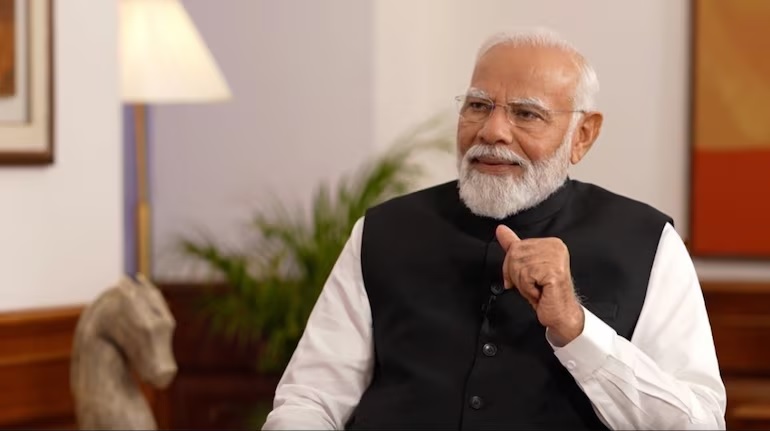News
1976: 40 years after, the Tonye Princewill’s movie surfaces

The streets of Nollywood were lit up last night with the movers and shakers of the industry attending the first private screening of Prince Tonye Princewill’s latest movie production, 76′.
The streets of Nollywood were lit up last night with the movers and shakers of the industry attending the first private screening of Prince Tonye Princewill’s latest movie production, 76′.
The Private screening was the first time the cast and crew alongside leaders of the business community; saw the finished product of six years of intense work.
Linus Idausa, Uti Nwachukwu, Omoye Ozamere and many other celebrities joined the cast and crew for this event.
The satisfaction of the viewers was glaring as the movie brought tears to everyone in the hall including one of the star acts, Rita Dominic.
Set six years after the Nigerian civil war, ’76’ tells the story of a young military officer from Nigeria’s Middle Belt region who gets entangled in a romantic relationship and eventually marries a beautiful student from the South-Eastern part of Nigeria.
Their budding romance is threatened by endless military postings, and they face the ultimate test when news of the soldier’s involvement in a botched coup attempt hits the headlines.
Directed by award winning director, Izu Ojukwu, 76 is inspired by events which led up to and followed the botched 1976 coup d’état, and features real life, archived, actual footage that contributes to the movie’s overall authenticity.
The execution of the movie was also done with the explicit approval and support from the Nigerian Army.
The director of the movie, Izu Ojukwu, described it as a tale of love in a time post war.
“The movie deals with a range of issues including the plight of the African woman, and the usually invisible pain of a soldier’s wife,” he said.
“76 highlights the enduring Nigerian cultural values of courage, resilience, patience, loyalty, faith and family and the nation’s ability to surmount all challenges.”
The release of 76 comes four decades to the date after the actual events, and follows several years of work by the director and the production duo of Adonis Productions and Princewill’s Trust.
‘76 stars renowned Nollywood names including Rita Dominic, Ramsey Nouah, Chidi Mokeme, Ibinabo Fiberesinma, Memry Savanhu, Ada Ofoegbu, Daniel K. Daniel and a host of others.
On his part, the Executive Producer and a patron of the Nigerian Association of Movie Producers, Prince Tonye T.J.T Princewill, said: “76 is a deeply emotional movie, and it resonated deeply with me as I am sure it will do for viewers not just in Nigeria, but around the world.
“The movie’s message presents a number of questions including how we got here, amongst many other issues.
“76 is the first movie to be shot on film and was thus a very expensive project.
“We are however very satisfied with the finished work and we know viewers will thoroughly enjoy the experience.”
Thanking the Nigerian Army, M-Net and other sponsors for their support, Princewill added: “None of this would be possible without the support we have received and continue to receive.
“The cast and crew have been phenomenal, and they gave their all to make this movie the success that it is.
“I’d also like to thank my partners Adonis Production led by Adonijah for showing me one of the most powerful ways to touch lives – by making movies.”
‘76 premieres in 2016 in cinemas across the world starting in Nigeria, thereafter it will hopefully come to TV screens across the continent courtesy of DSTv Box office, Netflix & MNET/Africa Magic.
Speaking on the Nigerian Army’s involvement in the movie, the Head Civil-Military Affairs Army Head Quarters, Major General Nicholas Rogers, representing the Chief of Army staff said “inevitably a lot has changed since 1976. As the world has evolved, so have we,”
“The relationship between the army and the people is now even more critical. Our true strength comes from collaboration, and nowhere is it better illustrated than in partnerships such as these.”
He also reiterated the commitment of the Nigerian Army Leadership to anything positive that tells their true story.
Wabiye Idoniboyeobu
News
2027: El-Rufai Moves Kaduna SDP into Merger with ADC Coalition

A major political shift has unfolded in Kaduna State as former governor, Malam Nasir El-Rufai, spearheaded the merger of the entire structure of the Social Democratic Party (SDP) with the African Democratic Congress (ADC).
The development, which signals a significant realignment ahead of Nigeria’s next political cycle, was announced during a coalition meeting held in Kaduna on Saturday, August 23, 2025.
The gathering brought together influential leaders, party executives, and stakeholders drawn from diverse political platforms.
In a communiqué issued after the meeting and signed by the Kaduna State Coalition Publicity Secretary, Hon. Darius Kurah, El-Rufai was identified as the key figure driving the coalition efforts.
He chaired the meeting, which was attended by ADC leaders, former commissioners, SDP executives, and several prominent figures from the state’s political class.
Among the attendees were Hon. Ja’afar Mohammed Sani, ADC Vice Chairman (North West); Elder Patrick Ambut, ADC Kaduna State Chairman; and Mallam Bashir Saidu, a leading ADC strategist in the state.
Addressing the gathering, El-Rufai described the merger as a decisive step toward building a credible political alternative in Kaduna.
He stressed that the coalition’s central goal is unity, with a strong emphasis on inclusive governance and people-centered development.
“Our mission is clear: to strengthen progressive leadership in Kaduna and Nigeria by rallying around shared ideals and ensuring that politics serves the people, not personal interests,” El-Rufai said.
Ja’afar Mohammed Sani, ADC Vice Chairman for the North West, praised the SDP leadership for what he called a “bold and courageous decision.”
He described the merger as a new dawn for credible leadership in Kaduna and a signal that opposition politics is reawakening.
Similarly, Elder Patrick Ambut welcomed the SDP members into the ADC fold, assuring them of full integration into existing party structures.
He noted that the coalition was not just about structures merging but about harmonizing ideologies for the collective good of the people.
Mallam Bashir Saidu reinforced this view, stressing that the merger represented “a convergence of visions and principles dedicated to building a future where governance is truly accountable.”
As part of the resolutions adopted at the meeting, the ADC National Working Committee (NWC) was tasked with setting up a Membership Registration Committee.
This committee will work closely with the Kaduna State chapter, alongside local government and ward units, to begin new membership registration while revalidating existing members.
According to the communiqué, this grassroots exercise is expected to strengthen the coalition’s reach, consolidate its base, and position it strategically ahead of future elections.
The meeting ended on a hopeful note, with stakeholders pledging commitment to building a formidable front capable of challenging the dominance of established parties in the state.
Political observers say El-Rufai’s move has reshaped Kaduna’s political landscape.
By leading the SDP into a merger with the ADC, the former governor has positioned himself once again as a central figure in the state’s opposition politics.
The coalition is seen as part of a broader strategy by opposition forces to rally around credible alternatives and build momentum ahead of 2027.
With grassroots mobilization already on the agenda, analysts suggest the ADC-SDP merger could become a significant force, particularly in northern Nigeria where El-Rufai still commands influence.
For now, Kaduna’s political terrain has shifted, and the coming months will determine whether this coalition translates into electoral strength or fades into another short-lived alliance.
News
Oral sex by couple is not sin — Apostle Johnson Suleman
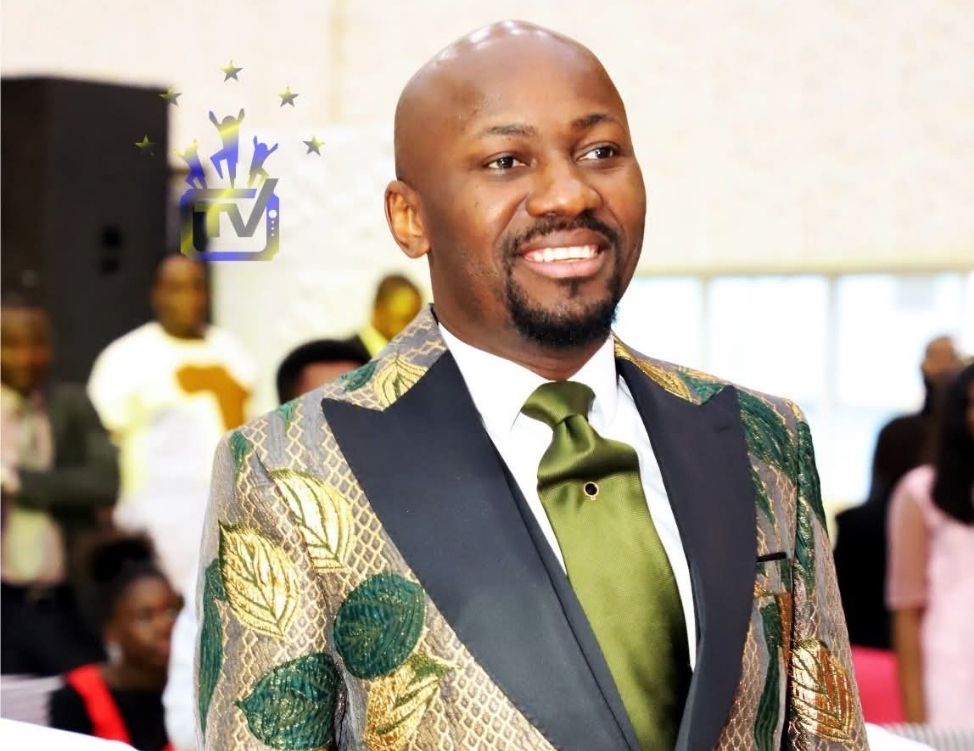
The General Overseer of Omega Fire Ministries International, Apostle Johnson Suleman, has said oral sex between a husband and wife is not sinful.
He made the comment during a question-and-answer session at a church service.
Though, it is unclear when the service took place, but a video of his remarks surfaced on YouTube on 22 August 2025.
During the session, a woman, believed to be in her 50s asked, “Daddy, Sir, is oral sex a sin?” Mr Suleman, popularly called “Daddy” by members of the congregation, chuckled before responding.
“Should I answer from the Bible?” he asked, as the audience urged him to speak. “Anything you do with your wife indoors is not a sin. So long as she’s your wife and both of you agree to do it, (it is not a sin),” he said.
Some congregants murmured at his response, but Mr Suleman continued: “I can show you (from the Bible). When the Bible was talking about the wife of your youth, it was talking about ‘go within thy walls, let thy hands pass through her cisterns.’ What do you think the Bible was saying? So long as it is not fetish, a ritual, it is not diabolic, (it is not a sin).”
He also dismissed claims that oral sex is inappropriate because the mouth is used to pray.
“Don’t you use the same mouth to gossip? Don’t you use the same mouth to tell lies?” he asked in Pidgin English.
Anticipating backlash, the preacher said he was unfazed. “Save your home, save your home,” he told worshippers, urging couples not to deny their spouse’s request for sex.
While Mr Suleman insisted the practice is permissible in marriage, health specialists have long cautioned against it.
Oral sex — also known as orogenital sex — involves using the mouth, lips or tongue to stimulate a partner’s genitals or anus.
Adegboyega Fawole, a gynaecologist at the University of Ilorin Teaching Hospital, warned in 2017 that it could expose people to Human Papilloma Virus (HPV) infections in the mouth, raising the risk of HPV-related oral cancers.
The virus is also linked to cervical cancer, genital warts and anal cancer.
Similarly, Bamidele Mutiu, a consultant microbiologist at the Lagos State University Teaching Hospital, explained in a 2021 interview that organisms causing sexually transmitted diseases survive in genital secretions and are not destroyed by saliva.
News
‘I’m Under Attack Over My Race and Ethnicity’ – Kemi Badenoch Cries Out
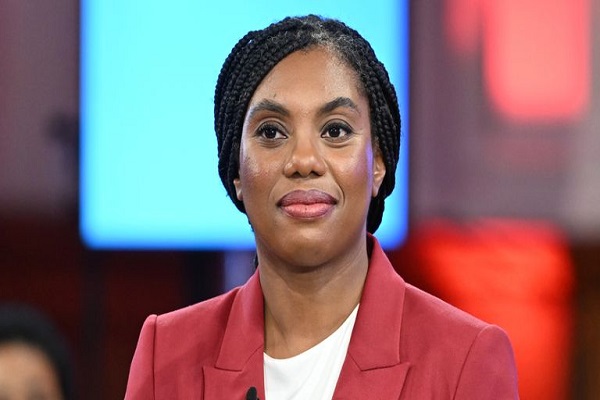
Conservative Party leader Kemi Badenoch has revealed the scale of racism and hostility she has faced since becoming the first black woman to lead the Tories.
In an interview with The Sunday Times, Badenoch admitted she did not expect the level of personal attacks she has endured online and within political circle.
“There’s a certain cadre of people who clearly can’t cope with the fact that I won this and I’m doing it,” she said.
“The level of personal attacks from anonymous people is hysterical.
Not just from MPs only two or three out of 120 but also online.
People used to talk about Trump derangement syndrome. I think there’s a Kemi derangement syndrome: ‘How could she possibly have done this?’.”
The 44-year-old politician, who was born in Wimbledon and raised in Nigeria before returning to the UK at 16, said much of the abuse has focused on her race and identity.
“On social media, there’s a lot of ethno-nationalism creeping up,” she noted.
“There are tropes around, ‘well, she couldn’t possibly have done this all by herself.’”
Badenoch rarely speaks at length about her race, often stressing that she sees Britain as a country where minorities thrive. She has previously argued that “Britain is not a racist country” and faced criticism for saying that white working-class boys struggle more than ethnic minorities on many social indicators.
“I always try to think of every possible explanation before I go to race and racism,” she told the paper.
“That is a healthy way to run a society. There will always be people who throw mud and hope it sticks.”
The Tory leader now faces a critical moment as she prepares for her first party conference speech.
With the Conservatives polling at just 17%, she is under pressure to unite her party and fend off speculation of a leadership challenge from her shadow justice secretary, Robert Jenrick.
On rumours Jenrick could soon replace her, Badenoch dismissed the claims as “wishful thinking.”
“There will always be sore losers—our candidate didn’t win, and so on,” she said.
“When I hear those things, I can tell those people are not focused on the country at all. Many of them think this is a game. But the lives of people in this country aren’t a game.”
News
UNIUYO VC turns FG loan into extortion racket
...NELFund beneficiaries forced to pay higher fees, extra ₦50,000 illegal charges
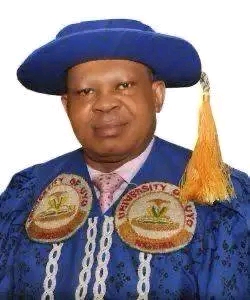
The University of Uyo, a federal government-owned university in Akwa Ibom State, has become the first campus where the Federal Government’s new loan scheme for indigent students is being twisted into a money-making scam.
At the centre of the storm is Vice Chancellor Prof. Nyaudoh Ndaeyo, accused by staff, students, and academics of sabotaging the Nigerian Education Loan Fund (NELFund) and weaponizing poverty for profit.
How the Loan Works
Under President Bola Ahmed Tinubu’s policy, each beneficiary should receive ₦284,100:
₦44,100, for institutional fees, and ₦240,000, for upkeep
The design is simple: government pays so that poor students won’t drop out.
How Uniuyo Twists It
Inside Uniuyo, the VC has allegedly flipped the scheme on its head. Beneficiaries are being told to pay fees first pending when the Federal Government will release the money (loan). Refunds, staff say, could take “months or years—if they ever come at all.”
To make matters worse, NELFund students are being charged higher fees than their classmates. Documents and testimonies show that final year students in the Faculty of Arts are made to pay an extra ₦20,000 ‘development levy’ and ₦30,000 ‘professional accreditation fee’ imposed only on NELFund beneficiaries. That’s a shocking ₦50,000 illegal surcharge—punishing the very students government is trying to help.
Staff Blow the Whistle
A Registry officer said bluntly:
“The Federal Government created NELFund to ease students’ burden. But the VC has turned it upside down. He is using it to raise money.”
A top Bursary official added:
“Prof. Ndaeyo knows refunds hardly work here. He wants students to pay first, knowing many will never get their money back. This is deliberate monetization of education.”
“Cruel Irony”
Lecturers are furious. A senior academic in the Faculty of Arts called it a cruel irony:
“Poor students are paying more than the rich. This is wickedness. It shows the VC loves money more than humanity.”
Others point to a disturbing pattern under Ndaeyo—skyrocketing acceptance fees, inflated transcript costs, and endless hidden charges.
“Every policy he introduces is about extracting money. NELFund is just the latest victim,” said a professor in Engineering.
Students Cry Out
For students, the betrayal cuts deepest.
“If I had money, why would I apply for a loan?” asked a Political Science student. “They are using our suffering to make money for themselves. This is exploitation.”
Bigger Question
Why would a Vice Chancellor sabotage a Federal Government program meant to help the poor? Insiders say it’s either an obsession with internally generated revenue—or plain greed.
Either way, the consequences are devastating: poor students are being pushed out while Uniuyo’s coffers grow fat.
Time for Action
As one Education professor warned:
“We cannot allow one man’s greed to mortgage the future of our children. Universities should be centres of hope, not dens of extortion.”
With ₦284,100 per student at stake, attention now shifts to the Ministry of Education and the Presidency. Will they act to protect indigent students—or let Uniuyo’s Vice Chancellor turn a national lifeline into an extortion racket?


News
JUST IN: Benue Assembly Speaker Resigns

The Speaker of the Benue State House of Assembly, Aondona Dajoh, has resigned from his position, citing the “best interest of the state” as the reason for his decision.
Dajoh’s resignation was conveyed in a letter he personally signed, dated August 24, 2025, and made available to Channels Television.
In the letter, titled “Resignation As The Speaker, Benue State House of Assembly,” the Gboko West representative wrote:
“I write to resign my position as the Speaker, Benue State House of Assembly, effective today, August 24, 2025.
This is done in good faith and in the best interest of the state. I want to appreciate my dear colleagues for the opportunity they gave me to be the first among equals.
I pledge to remain committed to my duties as a legislator and representative of Gboko West State Constituency.”
Dajoh’s resignation comes just days after the House suspended four members — Alfred Berger (Makurdi North), Terna Shimawua (Kian), Cyril Ekong (Obi), and James Umoru (Apa) — for six months.
The lawmakers had allegedly spearheaded an attempt to impeach the Speaker in a late-night move.
The Majority Leader, Saater Tiseer, who raised a motion of urgent importance, accused the four of attempting to destabilise the Assembly with a “needless crisis.”
The motion was unanimously adopted, and Dajoh subsequently directed the Sergeant-at-Arms to escort the suspended members out of the chambers.
Following Berger’s suspension, Dajoh also appointed Audu Elias as the new spokesperson of the House.
Meanwhile, Governor Hyacinth Alia has distanced himself from the political tension in the Assembly.
In a statement by his Chief Press Secretary, Tersoo Kula, the governor said he had no role in the alleged impeachment plot.
“The governor, Hyacinth Alia, is not aware of and has no involvement whatsoever in any purported attempt to remove the Speaker or in any activities currently taking place in the Benue State House of Assembly,” the statement read.
It added that Governor Alia maintained a cordial working relationship with the Dajoh-led Assembly and remained committed to supporting the legislature in carrying out its duties.
The resignation also follows a turbulent week in the Assembly. Just a day earlier, the House screened and confirmed six commissioner nominees but rejected two, including a law professor, Timothy Ornguga.
Ornguga’s nomination was struck out after four petitions were submitted against him, alleging misconduct during his years as a lecturer, as well as concerns about his qualifications.
Lawmakers, led by Tarka representative Manger Manger, queried his credentials, including the absence of a primary school certificate.
Alongside Ornguga, nominee James Dwen was also rejected after failing to adequately defend himself against allegations contained in petitions.
The House asked Governor Alia to submit replacements for both nominees.
Dajoh’s resignation is expected to reshape the leadership dynamics of the Assembly, which has been rocked in recent weeks by internal divisions, impeachment plots, and controversial legislative battles.
While he has stepped down from the top seat, Dajoh assured his constituents that he will remain fully committed to his legislative responsibilities.
His exit as Speaker raises questions about whether the recent suspension of lawmakers and rejection of commissioner nominees may have deepened divisions within the Benue political space.
-

 Celebrity/Entertainment2 days ago
Celebrity/Entertainment2 days agoHow Nigerian TikToker Geh Geh Made ₦45 Million in One Night
-
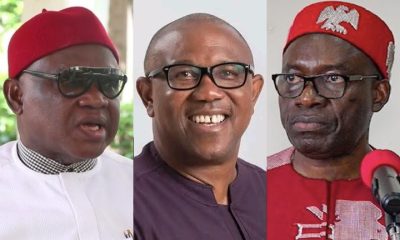
 Featured6 days ago
Featured6 days agoYour Attacks on Peter Obi Are Petty, Stop It! Chekwas Rebukes Soludo
-
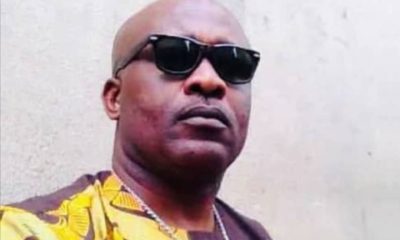
 News5 days ago
News5 days agoTension in Anambra community as senior police officer shoots kinsman dead
Colleagues, others try cover-up; victim's family fights back
-

 News6 days ago
News6 days agoNigerian visa applicants must provide 5-yr social media history — US embassy
-

 News4 days ago
News4 days agoTerrorist Organisation: APC, PDP Members in US, UK, France Risk Deportation
-

 Celebrity/Entertainment6 days ago
Celebrity/Entertainment6 days agoWhy single mothers can’t raise boys into proper men — Jim Iyke
-

 News3 days ago
News3 days agoVandal electrocuted while vandalizing Aba power infrastructure
-

 News3 days ago
News3 days ago15% of Nigerian girls aged 15–19 are mothers or pregnant — FG
-

 News2 days ago
News2 days agoPeter Obi’s Son Breaks Silence Over His Viral Photos Nigerians Are Talking About
-

 News2 days ago
News2 days agoI’m not a gay — Obi’s son Oseloka speaks on viral picture





